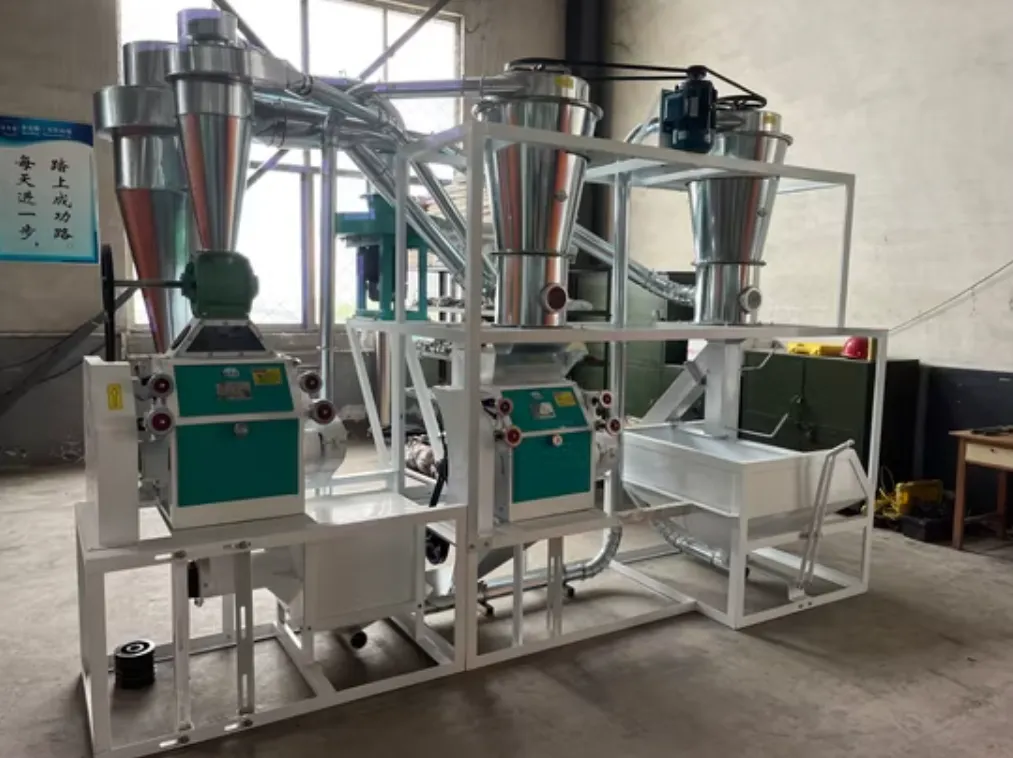In the world of industrial engineering, precision is everything. Whether it’s in pharmaceuticals, food processing, or materials manufacturing, size reduction plays a critical role in ensuring quality and efficiency. Enter DP Mills—your go-to solution for cutting-edge milling technology. With an expert focus on machines that redefine size reduction processes like vjet mills, pin mills, hammer mills, and air classifier mills, DP Mills stands at the forefront of innovation. This blog will delve into the significance of precision milling and explore how these machines can revolutionize your operations across various industries. Buckle up as we embark on this journey through the realm of advanced industrial machinery!
Understanding DP Mills and its Role in Industrial Engineering
DP Mills has carved a niche in the industrial engineering sector by specializing in precision milling technology. Their machines are engineered to meet the diverse needs of various industries, ensuring consistency and quality in size reduction processes.
The company emphasizes innovation and efficiency. Each machine is designed with advanced features that enhance performance while minimizing waste. This dedication to excellence makes DP Mills an essential player in manufacturing settings where precision counts.
The Importance of Precision Milling in Manufacturing Processes
Precision milling plays a crucial role in the manufacturing landscape. It ensures that materials are processed to exact specifications, which is essential for quality control.
In industries like pharmaceuticals and food production, accuracy can mean the difference between success and failure. Properly milled ingredients contribute to consistent end products.
Additionally, precision milling enhances efficiency. By minimizing waste and optimizing material usage, manufacturers can save both time and costs.
The technology behind precision milling continually evolves, leading to innovations that improve productivity further. With advanced machinery like jet mills or hammer mills from DP Mills, companies gain access to cutting-edge solutions tailored for their needs.
Precision milling empowers manufacturers by delivering high-quality results while maintaining competitiveness in a rapidly changing market.
Types of Size Reduction Machines Offered by DP Mills:
DP Mills offers a diverse range of size reduction machines tailored for various industrial needs.
Jet mills utilize high-velocity air to achieve precise milling. This method minimizes contamination, making it ideal for sensitive materials.
Pin mills operate using rotating pins to break down particles effectively. They are particularly suited for fine grinding applications where uniformity is crucial.
Hammer mills, another key offering from DP Mills, employ hammers that strike the material rapidly. This results in efficient size reduction and versatility across different materials.
Air classifier mills combine both milling and classification processes in one machine. By controlling particle sizes during processing, they ensure optimal results tailored to specific requirements.
Jet Mills
Jet mills are a remarkable innovation in the realm of size reduction technology. They operate on the principle of high-velocity air streams, which create intense collisions between particles. This unique process results in fine powders without introducing heat that could alter material properties.
These machines excel at handling materials that require precise particle size control and minimal contamination. The absence of mechanical parts reduces wear and tear, ensuring longevity and reliability in various industrial applications.
Ideal for pharmaceuticals, food products, and chemicals, jet mills can achieve exceptional fineness levels. Manufacturers appreciate their ability to produce ultra-fine powders consistently while maintaining strict quality standards.
Pin Mills
Pin mills are specialized machines designed for precision size reduction of various materials. They utilize a series of rotating pins that create high-velocity impacts, ensuring efficient grinding and milling processes.
These machines excel in processing brittle to moderately hard materials, making them suitable for industries like pharmaceuticals and food production. Their ability to produce fine particles with minimal heat generation preserves the quality of sensitive ingredients.
One significant advantage is their versatility. Pin mills can handle diverse applications ranging from chemical powders to spices. The adjustable speed settings allow operators to customize the milling process according to specific material properties.
Hammer Mills
Hammer mills are pivotal in the realm of size reduction machines. Their design allows them to crush, grind, and pulverize materials effectively. This capability makes them widely used across various industries.
One key feature is their versatility. Hammer mills can handle a diverse range of materials, including grains, herbs, and even recyclables. They provide precise particle sizing while maintaining product integrity.
The operation involves high-speed rotating hammers that impact the material against screens or barriers. This process ensures efficient breakdown without excessive heat generation.
Air Classifier Mills
Air Classifier Mills are a vital component in the world of size reduction. These machines offer a unique approach to milling, combining grinding and air classification in one seamless process.
The technology behind Air Classifier Mills allows for precise control over particle size distribution. This advantage is crucial for industries that require specific powder characteristics, such as pharmaceuticals and food production.
As materials pass through the mill, they are subjected to intense airflow that separates particles based on their size and density. Smaller particles are carried away while larger ones undergo further grinding until they reach the desired fineness.
Not only do these mills enhance efficiency, but they also reduce waste by ensuring optimal use of raw materials. Their versatility makes them an excellent choice for various applications across different sectors. Each operation can be tailored to meet specific needs, making them indispensable tools in precision milling processes.
Advantages of Using DP Mills’ Machines
DP Mills’ machines stand out for their exceptional precision. This is crucial in industries where accuracy directly impacts the quality of the final product. High-quality milling ensures consistent particle size, leading to improved performance.
Efficiency is another significant advantage. The innovative designs of DP Mills allow for faster processing times while minimizing energy consumption. This can greatly improve productivity and lower operational costs.
Durability plays a vital role as well. Built with robust materials, these machines are designed to withstand rigorous industrial use without compromising functionality or safety.
Flexibility in operation further enhances their appeal. Users can easily adjust settings to accommodate different materials and desired outcomes, making them versatile tools across various applications.
Applications of DP Mills’ Machines in Various Industries
DP Mills’ machines find a wide array of applications across numerous industries. In the pharmaceutical sector, precision milling is crucial for producing fine powders that ensure proper dosages and effectiveness in medications.
The food industry also benefits significantly from DP Mills’ technology. Hammer mills are often used to grind grains into flour or reduce spices to desired particle sizes without compromising flavor.
Cosmetics manufacturers rely on air classifier mills for creating ultra-fine particles in products like powders and creams, enhancing texture and application properties.
Factors to Consider When Choosing a Size Reduction Machine
When selecting a size reduction machine, several key factors come into play. First, consider the material you will be processing. Different machines handle various materials with distinct properties and particle sizes.
Next, assess the desired particle size distribution. Some applications demand finer particles while others require coarser outputs. Your choice of machine should align with these specifications to ensure optimal performance.
Energy efficiency is another crucial element. Machines that consume less energy can significantly reduce operational costs over time.
Think about maintenance requirements. A user-friendly design simplifies upkeep and minimizes downtime.
Evaluate the machine’s scalability for future needs. Investing in equipment that adapts to changing production demands ensures longevity in your manufacturing processes without significant additional costs or disruptions.
Conclusion
When it comes to industrial engineering, DP Mills stands out as a leader in precision milling and size reduction technology. Their commitment to quality and innovation has made them a trusted partner for various industries looking to enhance their manufacturing processes.



